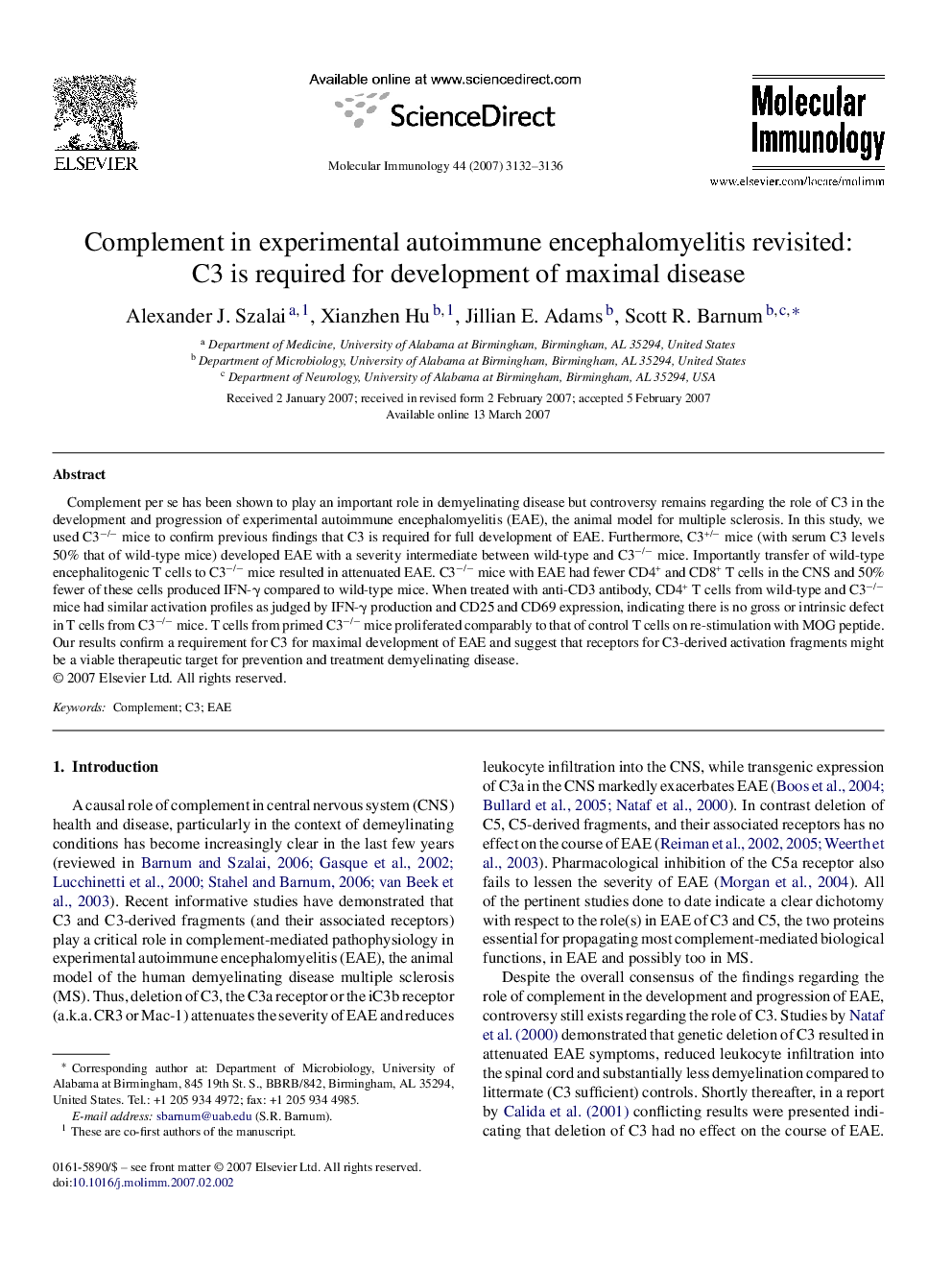| کد مقاله | کد نشریه | سال انتشار | مقاله انگلیسی | نسخه تمام متن |
|---|---|---|---|---|
| 2833267 | 1163863 | 2007 | 5 صفحه PDF | دانلود رایگان |

Complement per se has been shown to play an important role in demyelinating disease but controversy remains regarding the role of C3 in the development and progression of experimental autoimmune encephalomyelitis (EAE), the animal model for multiple sclerosis. In this study, we used C3−/− mice to confirm previous findings that C3 is required for full development of EAE. Furthermore, C3+/− mice (with serum C3 levels 50% that of wild-type mice) developed EAE with a severity intermediate between wild-type and C3−/− mice. Importantly transfer of wild-type encephalitogenic T cells to C3−/− mice resulted in attenuated EAE. C3−/− mice with EAE had fewer CD4+ and CD8+ T cells in the CNS and 50% fewer of these cells produced IFN-γ compared to wild-type mice. When treated with anti-CD3 antibody, CD4+ T cells from wild-type and C3−/− mice had similar activation profiles as judged by IFN-γ production and CD25 and CD69 expression, indicating there is no gross or intrinsic defect in T cells from C3−/− mice. T cells from primed C3−/− mice proliferated comparably to that of control T cells on re-stimulation with MOG peptide. Our results confirm a requirement for C3 for maximal development of EAE and suggest that receptors for C3-derived activation fragments might be a viable therapeutic target for prevention and treatment demyelinating disease.
Journal: Molecular Immunology - Volume 44, Issue 12, May 2007, Pages 3132–3136